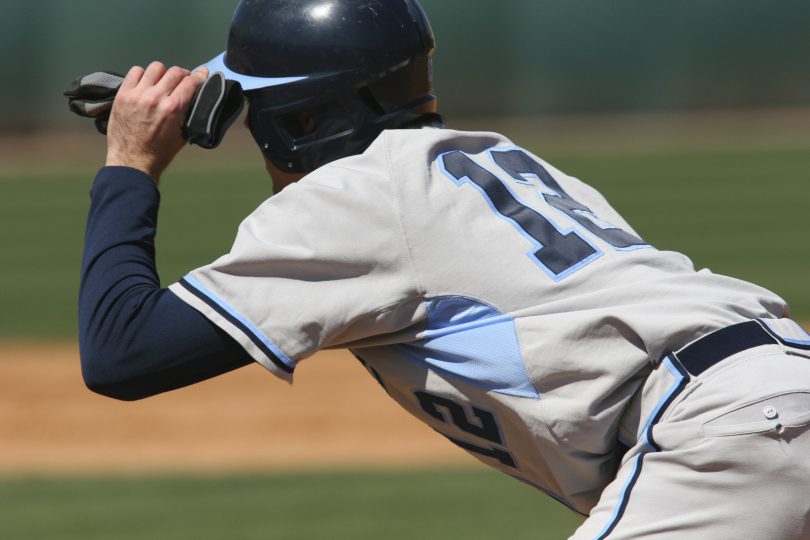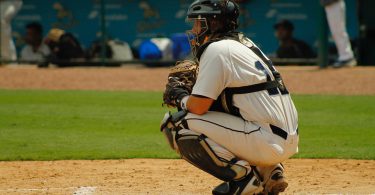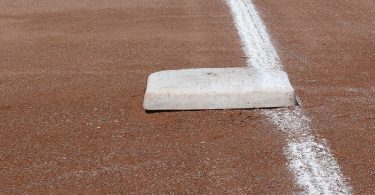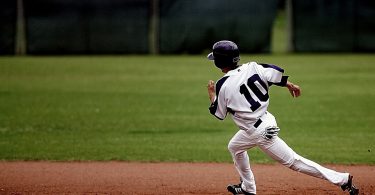The Situation:
Runner on second, 0 outs, 3-hitter is up. The offense is behind, 3-2, in the 8th inning.
The Play:
The batter hits a hard ground ball right back up the middle. The runner on second takes a couple of hard steps towards third, just as the pitcher reaches out and snags the grounder. The pitcher wheels around and throws the ball to the second baseman, covering second. The runner is caught in a rundown. The second baseman charges towards the runner, then flips the ball to the third baseman. The runner quickly reverses directions and charges back towards second. The second baseman, following his throw, crosses over the baseline and crashes into the runner’s shoulder. The umpire points and calls out “obstruction” while the play continues. The third baseman is able to chase down the runner and tag him before he gets to the bag.
The Outcome:
The second that the fielder made contact with the runner, the obstruction call was made. The play is allowed to play out and even though the runner is tagged out, he is granted 3rd base, per obstruction rules.
What went wrong?
In a rundown situation, the defense has to make sure that they establish a lane as soon as possible. This means that all the fielders involved are either inside the baseline, or outside the baseline. Once they have established this lane, the defense should make sure that they NEVER cross the baseline. Once a player makes a throw, they should peel away from the play to avoid making the same mistake here. When a runner is caught in a rundown, they should be tagged out 10 out of 10 times. There is no reason that a fielder should ever have to cross the baseline during a rundown if it is executed well.







